
Leadership : Six Studies in World Strategy
By: Henry Kissinger
Format: 336 pages, Hardcover
Henry Kissinger analyses how six extraordinary leaders he has known have shaped their countries and…
Want to Read $ 12.99"Well before the end of the 20th century however print had lost its former dominance. This resulted in, among other things, a different kind of person getting elected as leader. One who can present himself and his programs in a polished way, as Lee Quan Yu you observed in 2000, adding, “Satellite television has allowed me to follow the American presidential campaign. I am amazed at the way media professionals can give a candidate a new image and transform him, at least superficially, into a different personality. Winning an election becomes, in large measure, a contest in packaging and advertising. Just as the benefits of the printed era were inextricable from its costs, so it is with the visual age. With screens in every home entertainment is omnipresent and boredom a rarity. More substantively, injustice visualized is more visceral than injustice described. Television played a crucial role in the American Civil rights movement, yet the costs of television are substantial, privileging emotional display over self-command, changing the kinds of people and arguments that are taken seriously in public life. The shift from print to visual culture continues with the contemporary entrenchment of the Internet and social media, which bring with them four biases that make it more difficult for leaders to develop their capabilities than in the age of print. These are immediacy, intensity, polarity, and conformity. Although the Internet makes news and data more immediately accessible than ever, this surfeit of information has hardly made us individually more knowledgeable, let alone wiser, as the cost of accessing information becomes negligible, as with the Internet, the incentives to remember it seem to weaken. While forgetting anyone fact may not matter, the systematic failure to internalize information brings about a change in perception, and a weakening of analytical ability. Facts are rarely self-explanatory; their significance and interpretation depend on context and relevance. For information to be transmuted into something approaching wisdom it must be placed within a broader context of history and experience. As a general rule, images speak at a more emotional register of intensity than do words. Television and social media rely on images that inflamed the passions, threatening to overwhelm leadership with the combination of personal and mass emotion. Social media, in particular, have encouraged users to become image conscious spin doctors. All this engenders a more populist politics that celebrates utterances perceived to be authentic over the polished sound bites of the television era, not to mention the more analytical output of print. The architects of the Internet thought of their invention as an ingenious means of connecting the world. In reality, it has also yielded a new way to divide humanity into warring tribes. Polarity and conformity rely upon, and reinforce, each other. One is shunted into a group, and then the group polices once thinking. Small wonder that on many contemporary social media platforms, users are divided into followers and influencers. There are no leaders. What are the consequences for leadership? In our present circumstances, Lee's gloomy assessment of visual media's effects is relevant. From such a process, I doubt if a Churchill or Roosevelt or a de Gaulle can emerge. It is not that changes in communications technology have made inspired leadership and deep thinking about world order impossible, but that in an age dominated by television and the Internet, thoughtful leaders must struggle against the tide."-Henry Kissinger, Leadership : Six Studies in World Strategy
"Well before the end of the 20th century however print had lost its former dominance. This resulted in, among other things, a different kind of person getting elected as leader. One who can present himself and his programs in a polished way, as Lee Quan Yu you observed in 2000, adding, “Satellite television has allowed me to follow the American presidential campaign. I am amazed at the way media professionals can give a candidate a new image and transform him, at least superficially, into a different personality. Winning an election becomes, in large measure, a contest in packaging and advertising. Just as the benefits of the printed era were inextricable from its costs, so it is with the visual age. With screens in every home entertainment is omnipresent and boredom a rarity. More substantively, injustice visualized is more visceral than injustice described. Television played a crucial role in the American Civil rights movement, yet the costs of television are substantial, privileging emotional display over self-command, changing the kinds of people and arguments that are taken seriously in public life. The shift from print to visual culture continues with the contemporary entrenchment of the Internet and social media, which bring with them four biases that make it more difficult for leaders to develop their capabilities than in the age of print. These are immediacy, intensity, polarity, and conformity. Although the Internet makes news and data more immediately accessible than ever, this surfeit of information has hardly made us individually more knowledgeable, let alone wiser, as the cost of accessing information becomes negligible, as with the Internet, the incentives to remember it seem to weaken. While forgetting anyone fact may not matter, the systematic failure to internalize information brings about a change in perception, and a weakening of analytical ability. Facts are rarely self-explanatory; their significance and interpretation depend on context and relevance. For information to be transmuted into something approaching wisdom it must be placed within a broader context of history and experience. As a general rule, images speak at a more emotional register of intensity than do words. Television and social media rely on images that inflamed the passions, threatening to overwhelm leadership with the combination of personal and mass emotion. Social media, in particular, have encouraged users to become image conscious spin doctors. All this engenders a more populist politics that celebrates utterances perceived to be authentic over the polished sound bites of the television era, not to mention the more analytical output of print. The architects of the Internet thought of their invention as an ingenious means of connecting the world. In reality, it has also yielded a new way to divide humanity into warring tribes. Polarity and conformity rely upon, and reinforce, each other. One is shunted into a group, and then the group polices once thinking. Small wonder that on many contemporary social media platforms, users are divided into followers and influencers. There are no leaders. What are the consequences for leadership? In our present circumstances, Lee's gloomy assessment of visual media's effects is relevant. From such a process, I doubt if a Churchill or Roosevelt or a de Gaulle can emerge. It is not that changes in communications technology have made inspired leadership and deep thinking about world order impossible, but that in an age dominated by television and the Internet, thoughtful leaders must struggle against the tide."-Henry Kissinger, Leadership : Six Studies in World Strategy
"Well before the end of the 20th century however print had lost its former dominance. This resulted in, among other things, a different kind of person getting elected as leader. One who can present himself and his programs in a polished way, as Lee Quan Yu you observed in 2000, adding, “Satellite television has allowed me to follow the American presidential campaign. I am amazed at the way media professionals can give a candidate a new image and transform him, at least superficially, into a different personality. Winning an election becomes, in large measure, a contest in packaging and advertising. Just as the benefits of the printed era were inextricable from its costs, so it is with the visual age. With screens in every home entertainment is omnipresent and boredom a rarity. More substantively, injustice visualized is more visceral than injustice described. Television played a crucial role in the American Civil rights movement, yet the costs of television are substantial, privileging emotional display over self-command, changing the kinds of people and arguments that are taken seriously in public life. The shift from print to visual culture continues with the contemporary entrenchment of the Internet and social media, which bring with them four biases that make it more difficult for leaders to develop their capabilities than in the age of print. These are immediacy, intensity, polarity, and conformity. Although the Internet makes news and data more immediately accessible than ever, this surfeit of information has hardly made us individually more knowledgeable, let alone wiser, as the cost of accessing information becomes negligible, as with the Internet, the incentives to remember it seem to weaken. While forgetting anyone fact may not matter, the systematic failure to internalize information brings about a change in perception, and a weakening of analytical ability. Facts are rarely self-explanatory; their significance and interpretation depend on context and relevance. For information to be transmuted into something approaching wisdom it must be placed within a broader context of history and experience. As a general rule, images speak at a more emotional register of intensity than do words. Television and social media rely on images that inflamed the passions, threatening to overwhelm leadership with the combination of personal and mass emotion. Social media, in particular, have encouraged users to become image conscious spin doctors. All this engenders a more populist politics that celebrates utterances perceived to be authentic over the polished sound bites of the television era, not to mention the more analytical output of print. The architects of the Internet thought of their invention as an ingenious means of connecting the world. In reality, it has also yielded a new way to divide humanity into warring tribes. Polarity and conformity rely upon, and reinforce, each other. One is shunted into a group, and then the group polices once thinking. Small wonder that on many contemporary social media platforms, users are divided into followers and influencers. There are no leaders. What are the consequences for leadership? In our present circumstances, Lee's gloomy assessment of visual media's effects is relevant. From such a process, I doubt if a Churchill or Roosevelt or a de Gaulle can emerge. It is not that changes in communications technology have made inspired leadership and deep thinking about world order impossible, but that in an age dominated by television and the Internet, thoughtful leaders must struggle against the tide."-Henry Kissinger, Leadership : Six Studies in World Strategy
If you liked the biography plot in Leadership : Six Studies in World Strategy by Henry Kissinger , here is a list of 8 books like this:

1. Lee Kuan Yew: The Grand Master's Insights on China, the United States, and the World (Belfer Center Studies in International Security)
By: Lee Kuan Yew , Graham Allison , Robert D. Blackwill , Ali Wyne , Henry Kissinger
Format: 224 pages, Hardcover
Grand strategist and founder of modern Singapore offers key insights and controversial opinions on … read more
Want to Read $ 16.99Similar categories in Lee Kuan Yew's Lee Kuan Yew: The Grand Master's Insights on China, the United States, and the World (Belfer Center Studies in International Security) book and Henry Kissinger's Leadership : Six Studies in World Strategy
- international relations
- biography
- history
- politics
- nonfiction
- business
- leadership

2. Asia's Cauldron: The South China Sea and the End of a Stable Pacific
By: Robert D. Kaplan
Format: 112 pages, Hardcover
NAMED ONE OF THE BEST BOOKS OF THE YEAR BY FINANCIAL TIMES From Robert D. Kaplan, named one of the … read more
Want to ReadSimilar categories in Robert D. Kaplan's Asia's Cauldron: The South China Sea and the End of a Stable Pacific book and Henry Kissinger's Leadership : Six Studies in World Strategy
- politics
- international relations
- history
- nonfiction

3. Why Nations Fail: The Origins of Power, Prosperity, and Poverty
By: Daron Acemoğlu , James A. Robinson
Format: 529 pages, Hardcover
Brilliant and engagingly written, Why Nations Fail answers the question that has stumped the expert… read more
Want to Read $ 13.99Similar categories in Daron Acemoğlu's Why Nations Fail: The Origins of Power, Prosperity, and Poverty book and Henry Kissinger's Leadership : Six Studies in World Strategy
- history
- politics
- nonfiction
- political science
- business
"Central planning was just not good at replacing what the great eighteenth-century economist Adam Smith called the “invisible hand"-Daron Acemoğlu, Why Nations Fail: The Origins of Power, Prosperity, and Poverty
"As mudanças graduais também impediram aventuras em territórios inexplorados. O derrube violento do sistema significa que é necessário construir algo inteiramente novo, em vez daquilo que foi eliminad…"-Daron Acemoğlu, Why Nations Fail: The Origins of Power, Prosperity, and Poverty
"Sem o petróleo, os países do Médio Oriente são também todos pobres. (…) Foi a expansão e consolidação do Império Otomano, e é devido ao legado institucional desse império que o Médio Oriente continua…"-Daron Acemoğlu, Why Nations Fail: The Origins of Power, Prosperity, and Poverty
"A América do Norte tornou-se mais próspera precisamente porque adotou com entusiasmo as tecnologias e os progressos da Revolução Industrial. (…) A desigualdade no mundo atual é, em grande medida, uma…"-Daron Acemoğlu, Why Nations Fail: The Origins of Power, Prosperity, and Poverty
4. The Revenge Of Geography: What the Map Tells Us About Coming Conflicts and the Battle Against Fate
By: Robert D. Kaplan
Format: 258 pages, Hardcover
In this provocative, startling book, Robert D. Kaplan, the bestselling author of Monsoonand Balkan … read more
Want to ReadSimilar categories in Robert D. Kaplan's The Revenge Of Geography: What the Map Tells Us About Coming Conflicts and the Battle Against Fate book and Henry Kissinger's Leadership : Six Studies in World Strategy
5. Destined for War: Can America and China Escape Thucydides’s Trap?
By: Graham Allison
Format: 96 pages, Hardcover
CHINA AND THE UNITED STATES ARE HEADING TOWARD A WAR NEITHER WANTS. The reason is Thucydides's Trap… read more
Want to ReadSimilar categories in Graham Allison's Destined for War: Can America and China Escape Thucydides’s Trap? book and Henry Kissinger's Leadership : Six Studies in World Strategy
6. Kissinger
By: Walter Isaacson
Format: 201 pages, Paperback
By the time Henry Kissinger was made secretary of state in 1973, he had become, according to the Ga… read more
Want to ReadSimilar categories in Walter Isaacson's Kissinger book and Henry Kissinger's Leadership : Six Studies in World Strategy

7. Elon Musk
By: Walter Isaacson
Format: 688 pages, Hardcover
From the author of Steve Jobs and other bestselling biographies, this is the astonishingly intimate… read more
Want to Read $ 16.99Similar categories in Walter Isaacson's Elon Musk book and Henry Kissinger's Leadership : Six Studies in World Strategy
- history
- biography
- nonfiction
- business
- leadership
"[Musk] concluded that Trump as president was no different than he was as a candidate. The buffoonery was not just an act. "Trump might be one of the world’s best bullshitters ever," he says. "Like my…"-Walter Isaacson, Elon Musk
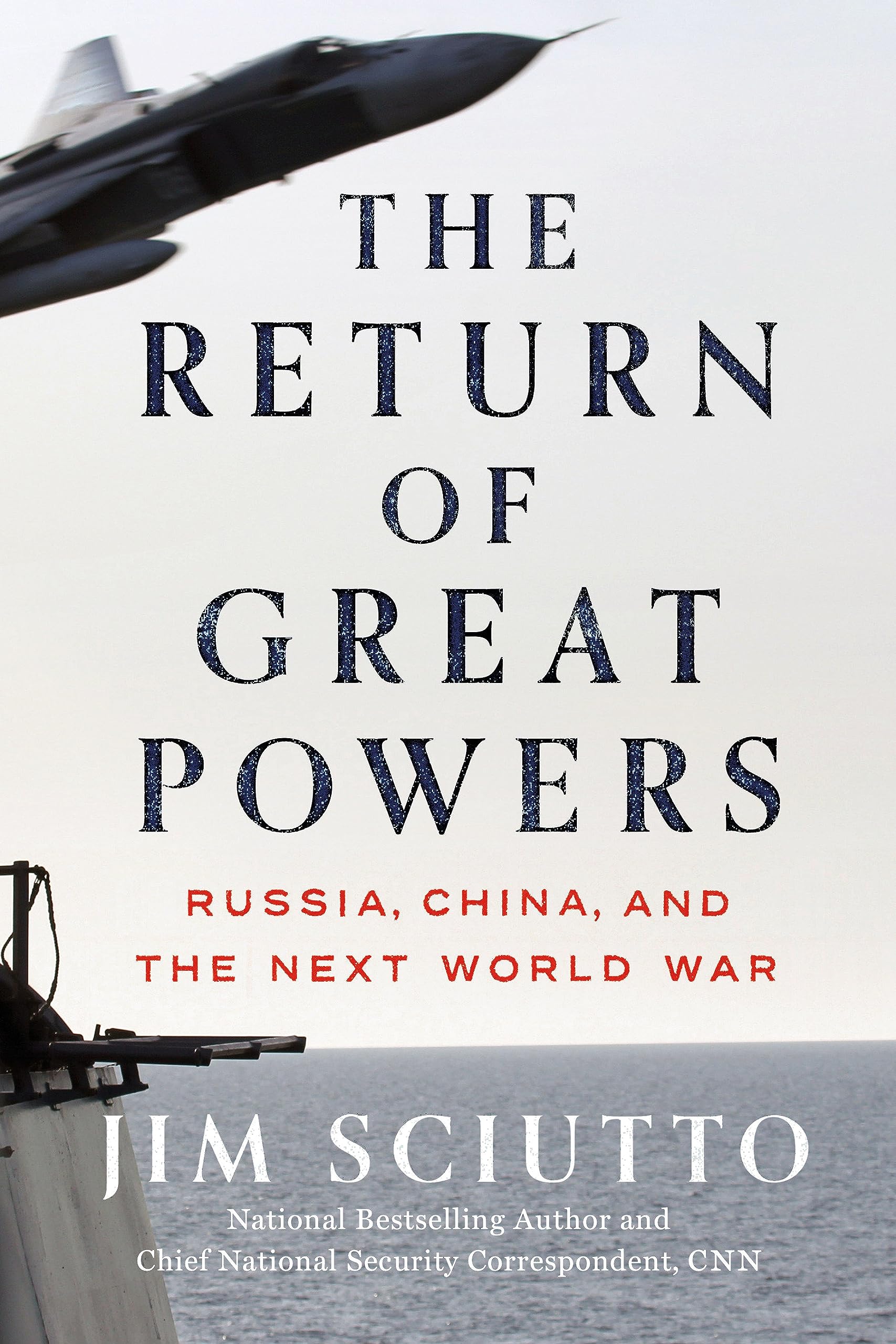
8. The Return of Great Powers: Russia, China, and the Next World War
By: Jim Sciutto
Format: 368 pages, Hardcover
The essential new book by CNN Chief National Security Correspondent Jim Sciutto, reporting from the… read more
Want to Read $ 15.99Similar categories in Jim Sciutto's The Return of Great Powers: Russia, China, and the Next World War book and Henry Kissinger's Leadership : Six Studies in World Strategy
- international relations
- history
- politics
- nonfiction
- political science
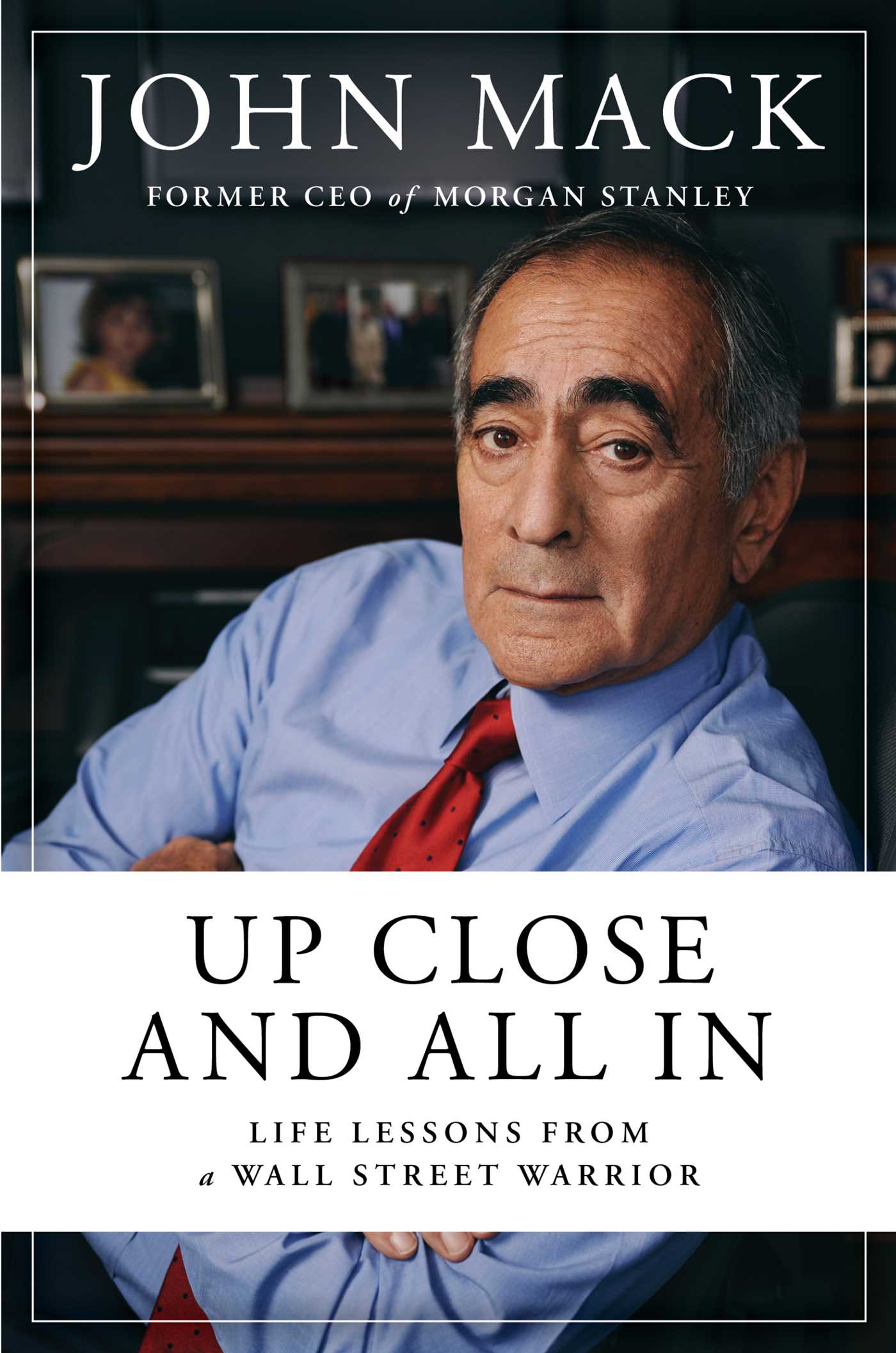
9. Up Close and All In: Life Lessons from a Wall Street Warrior
By: John Mack
Format: 320 pages, Hardcover
From John Mack, former CEO of Morgan Stanley, an intimate personal memoir and riveting business sto… read more
Want to ReadSimilar categories in John Mack's Up Close and All In: Life Lessons from a Wall Street Warrior book and Henry Kissinger's Leadership : Six Studies in World Strategy
- nonfiction
- biography
- business
- leadership
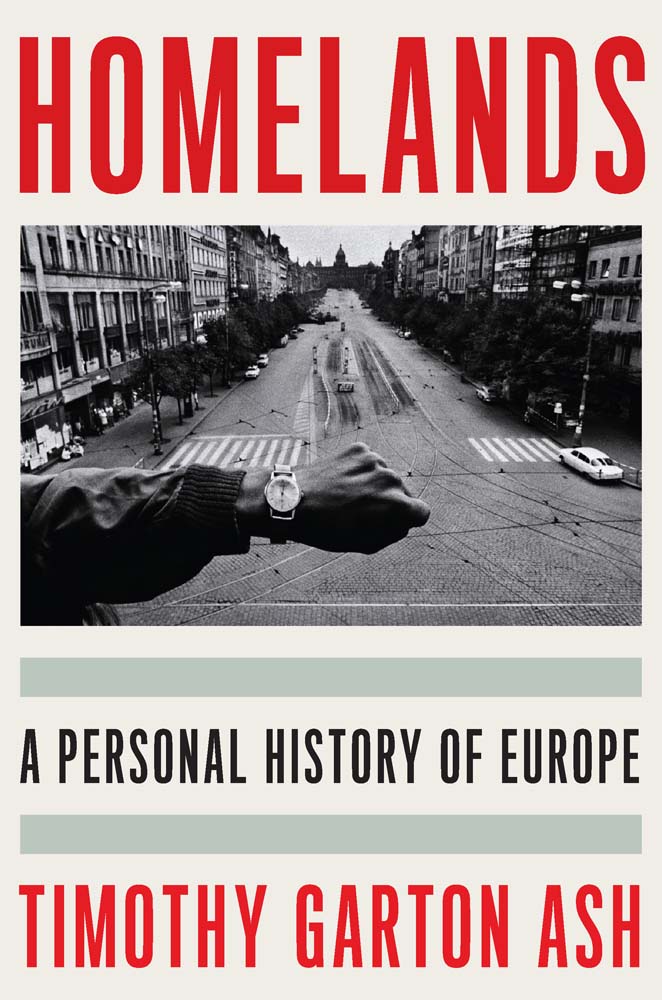
10. Homelands: A Personal History of Europe
By: Timothy Garton Ash
Format: 384 pages, Hardcover
Drawing on half a century of firsthand experience and exemplary scholarship, Timothy Garton Ash tel… read more
Want to Read $ 9.99Similar categories in Timothy Garton Ash's Homelands: A Personal History of Europe book and Henry Kissinger's Leadership : Six Studies in World Strategy
- politics
- history
- biography
- nonfiction

11. Chip War: The Fight for the World's Most Critical Technology
By: Chris Miller
Format: 464 pages, Hardcover
An epic account of the decades-long battle to control what has emerged as the world's most critical… read more
Want to Read $ 16.99Similar categories in Chris Miller's Chip War: The Fight for the World's Most Critical Technology book and Henry Kissinger's Leadership : Six Studies in World Strategy
- politics
- history
- nonfiction
- business
"Comrade, we have built the world’s biggest microprocessor!"-Chris Miller, Chip War: The Fight for the World's Most Critical Technology

12. How to Invest: Masters on the Craft
By: David M. Rubenstein
Format: 416 pages, Hardcover
NEW YORK TIMES BESTSELLER A master class on investing featuring conversations with the biggest nam… read more
Want to Read $ 14.99Similar categories in David M. Rubenstein's How to Invest: Masters on the Craft book and Henry Kissinger's Leadership : Six Studies in World Strategy
- nonfiction
- biography
- business
- leadership

13. Conflict: The Evolution of Warfare from 1945 to Ukraine
By: David H. Petraeus
Format: 544 pages, Hardcover
Two leading authorities—an acclaimed historian and the outstanding battlefield commander and strate… read more
Want to Read $ 18.99Similar categories in David H. Petraeus's Conflict: The Evolution of Warfare from 1945 to Ukraine book and Henry Kissinger's Leadership : Six Studies in World Strategy
- politics
- international relations
- history
- nonfiction
"A recurring theme of this book is that money spent on deterrence is seldom wasted, especially when considered against the costs incurred when the deterrence fails."-David H. Petraeus, Conflict: The Evolution of Warfare from 1945 to Ukraine
"Hybrid warfare particularly appeals to China and Russia, since they are much more able to control the information their populaces receive than are their Western adversaries. A 1999 book, Unrestricted…"-David H. Petraeus, Conflict: The Evolution of Warfare from 1945 to Ukraine

14. The Coming Wave: Technology, Power, and the Twenty-first Century's Greatest Dilemma
By: Mustafa Suleyman
Format: 332 pages, Hardcover
A warning of the unprecedented risks that AI and other fast-developing technologies pose to global … read more
Want to Read $ 14.99Similar categories in Mustafa Suleyman's The Coming Wave: Technology, Power, and the Twenty-first Century's Greatest Dilemma book and Henry Kissinger's Leadership : Six Studies in World Strategy
- philosophy
- politics
- nonfiction
- business
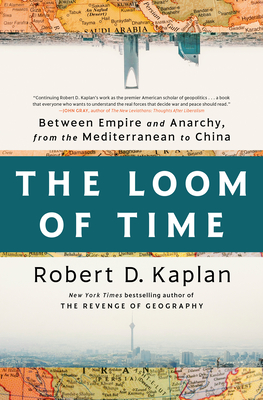
15. The Loom of Time: Between Empire and Anarchy, from the Mediterranean to China
By: Robert D. Kaplan
Format: 384 pages, Hardcover
A stunning exploration of the Greater Middle East, where lasting stability has often seemed just ou… read more
Want to Read $ 4.99Similar categories in Robert D. Kaplan's The Loom of Time: Between Empire and Anarchy, from the Mediterranean to China book and Henry Kissinger's Leadership : Six Studies in World Strategy
- politics
- history
- nonfiction

16. On Grand Strategy
By: John Lewis Gaddis
Format: 368 pages, Hardcover
A master class in strategic thinking, distilled from the legendary program the author has co-taught… read more
Want to Read $ 6.99Similar categories in John Lewis Gaddis's On Grand Strategy book and Henry Kissinger's Leadership : Six Studies in World Strategy
- international relations
- history
- politics
- philosophy
- nonfiction
- political science
- business
- leadership

17. Leadership : Six Studies in World Strategy
By: Henry Kissinger
Format: 336 pages, Hardcover
Henry Kissinger analyses how six extraordinary leaders he has known have shaped their countries and… read more
Want to Read $ 12.99Similar categories in Henry Kissinger's Leadership : Six Studies in World Strategy book and Henry Kissinger's Leadership : Six Studies in World Strategy
- international relations
- business
- biography
- history
- politics
- philosophy
- nonfiction
- political science
- management
- leadership
"Well before the end of the 20th century however print had lost its former dominance. This resulted in, among other things, a different kind of person getting elected as leader. One who can present hi…"-Henry Kissinger, Leadership : Six Studies in World Strategy

18. 21st Century Monetary Policy: The Federal Reserve from the Great Inflation to COVID-19
By: Ben S. Bernanke
Format: 512 pages, Hardcover
The winner of the 2022 Nobel Prize in Economics and former chair of the Federal Reserve explains th… read more
Want to Read $ 13.77Similar categories in Ben S. Bernanke's 21st Century Monetary Policy: The Federal Reserve from the Great Inflation to COVID-19 book and Henry Kissinger's Leadership : Six Studies in World Strategy
- politics
- history
- nonfiction
- business

19. Liberalism and Its Discontents
By: Francis Fukuyama
Format: 178 pages, Hardcover
A short book about the challenges to liberalism from the right and the left by the bestselling auth… read more
Want to Read $ 2.99Similar categories in Francis Fukuyama's Liberalism and Its Discontents book and Henry Kissinger's Leadership : Six Studies in World Strategy
- history
- politics
- philosophy
- nonfiction
- political science
"Нема причин, з яких економічна ефективність має домінувати над усіма іншими соціальними цінностями."-Francis Fukuyama, Liberalism and Its Discontents
"Комуністичні суспільства були схильні цінувати виробництво більше за споживання, що призвело до поганих наслідків: у них були «герої соціалістичної праці», але не було продуктів на полицях магазинів."-Francis Fukuyama, Liberalism and Its Discontents
"Низка людей, які працюють у цій галузі, починаючи з таких постструктуралістів, як Лакан і Дерріда, писали в такий спосіб, який, здавалося, навмисне затуманював їхні думки й захищав від відповідальнос…"-Francis Fukuyama, Liberalism and Its Discontents
"As instituições financeiras comportam-se de modo muito diferente do que as empresas na economia real. Ao contrário de uma companhia de manufatura, um grande banco de investimento é sistemicamente per…"-Francis Fukuyama, Liberalism and Its Discontents

20. Personality and Power
By: Ian Kershaw
Format: 512 pages, Hardcover
From one of the leading historians of twentieth-century Europe and the author of the definitive bio… read more
Want to Read $ 11.99Similar categories in Ian Kershaw's Personality and Power book and Henry Kissinger's Leadership : Six Studies in World Strategy
- politics
- biography
- history
- nonfiction
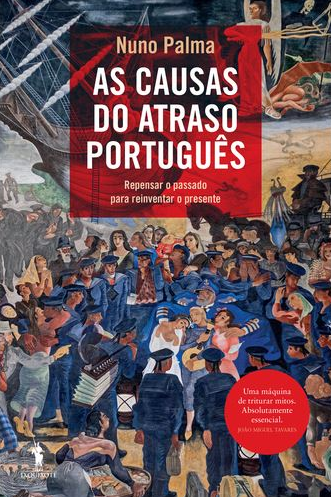
21. As Causas do Atraso Português: Repensar o passado para reinventar o presente
By: Nuno Palma
Format: 405 pages, Paperback
«Porque é Portugal hoje um país rico a nível mundial, mas pobre no contexto europeu? Quais são as c… read more
Want to ReadSimilar categories in Nuno Palma's As Causas do Atraso Português: Repensar o passado para reinventar o presente book and Henry Kissinger's Leadership : Six Studies in World Strategy
- politics
- history
- nonfiction

22. New Cold Wars: China's Rise, Russia's Invasion, and America's Struggle to Defend the West
By: David E. Sanger
Format: 528 pages, Hardcover
A fast-paced account of America’s plunge into simultaneous Cold Wars against two very different adv… read more
Want to Read $ 13.99Similar categories in David E. Sanger's New Cold Wars: China's Rise, Russia's Invasion, and America's Struggle to Defend the West book and Henry Kissinger's Leadership : Six Studies in World Strategy
- politics
- international relations
- history
- nonfiction

23. Danger Zone: The Coming Conflict with China
By: Hal Brands
Format: 304 pages, Hardcover
A provocative and urgent analysis of the U.S.–China rivalry. It has become conventional wisdom that… read more
Want to Read $ 9.99Similar categories in Hal Brands's Danger Zone: The Coming Conflict with China book and Henry Kissinger's Leadership : Six Studies in World Strategy
- international relations
- history
- politics
- nonfiction
- political science
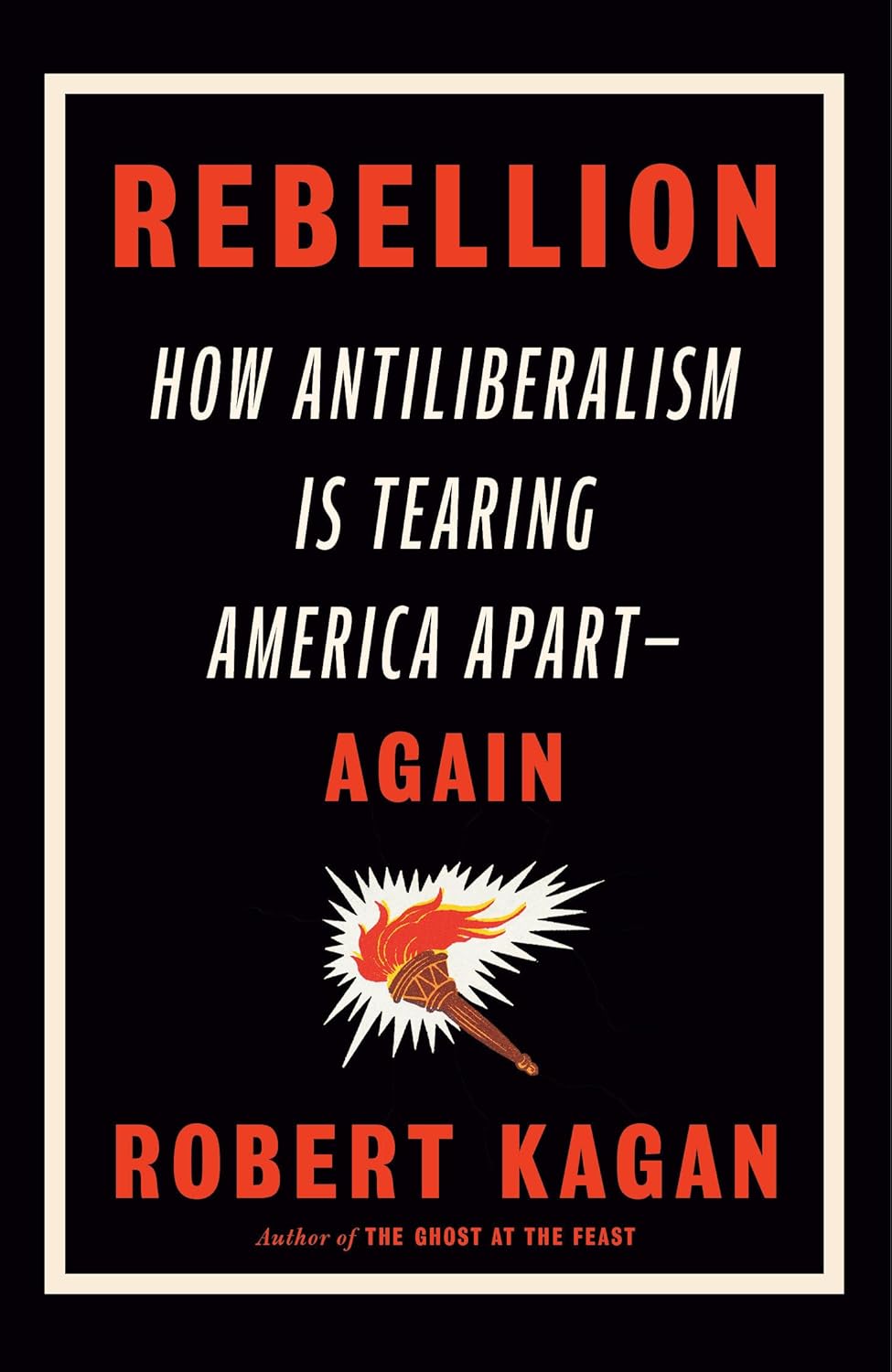
24. Rebellion: How Antiliberalism Is Tearing America Apart--Again
By: Robert Kagan
Format: 258 pages, Kindle Edition
A chilling and clear-eyed warning about the threats to our democracy posed by the increasing radica… read more
Want to Read $ 14.99Similar categories in Robert Kagan's Rebellion: How Antiliberalism Is Tearing America Apart--Again book and Henry Kissinger's Leadership : Six Studies in World Strategy
- politics
- political science
- history
- nonfiction
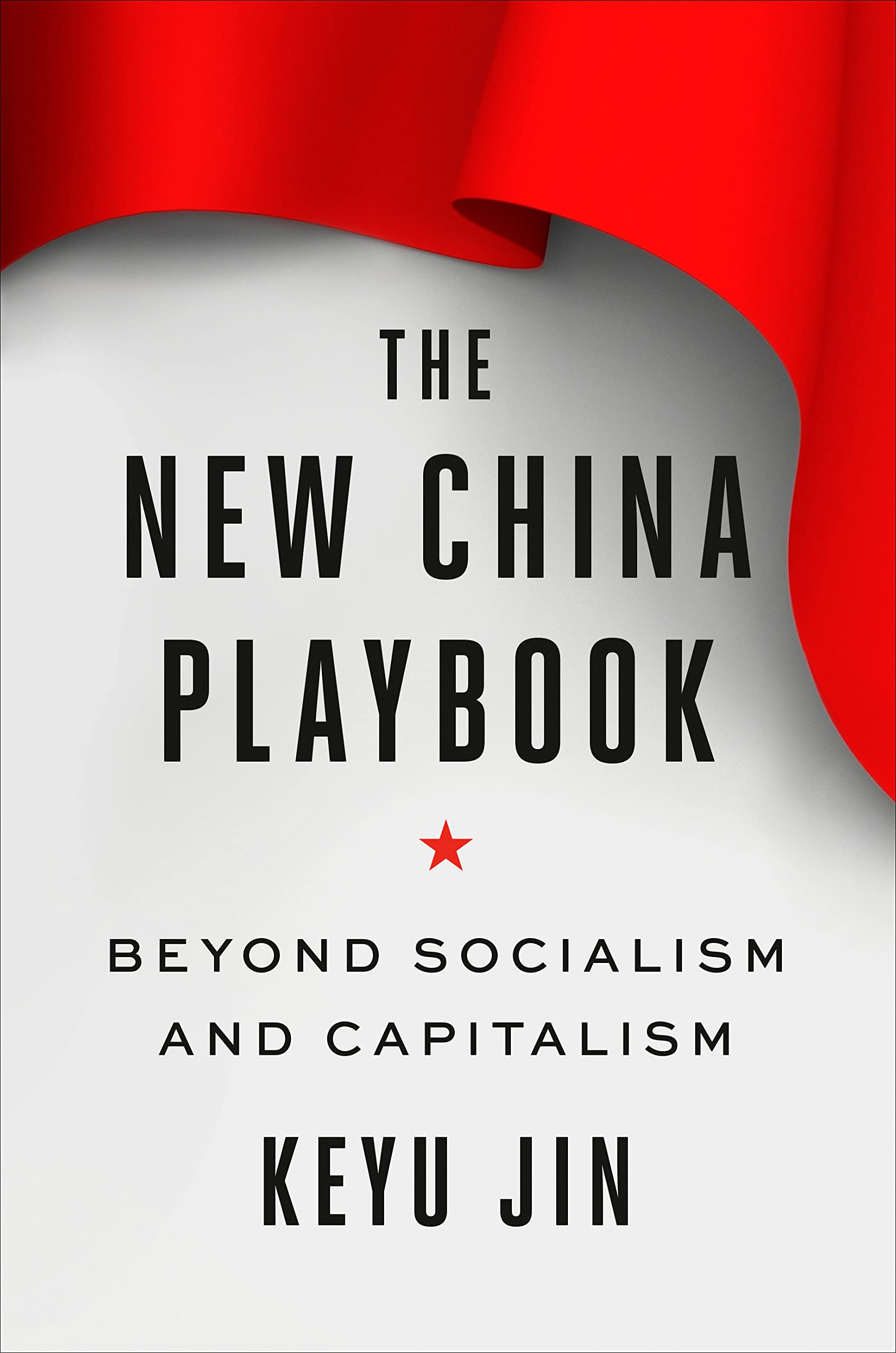
25. The New China Playbook: Beyond Socialism and Capitalism
By: Keyu Jin
Format: 320 pages, Hardcover
A myth-dispelling, comprehensive guide to the Chinese economy and its path to ascendancy China's… read more
Want to Read $ 9.99Similar categories in Keyu Jin's The New China Playbook: Beyond Socialism and Capitalism book and Henry Kissinger's Leadership : Six Studies in World Strategy
- international relations
- history
- politics
- nonfiction
- political science
- business

26. The Avoidable War: The Dangers of a Catastrophic Conflict between the US and Xi Jinping's China
By: Kevin Rudd
Format: 432 pages, Hardcover
A war between China and the US would be catastrophic, deadly, and destructive. Unfortunately, it is… read more
Want to Read $ 21.99Similar categories in Kevin Rudd's The Avoidable War: The Dangers of a Catastrophic Conflict between the US and Xi Jinping's China book and Henry Kissinger's Leadership : Six Studies in World Strategy
- politics
- international relations
- history
- nonfiction
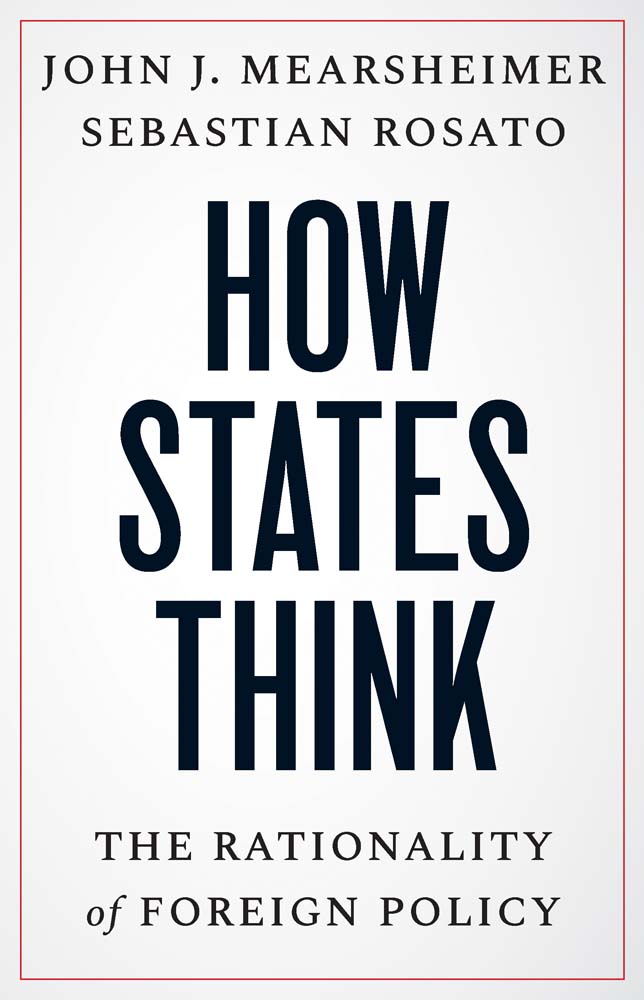
27. How States Think: The Rationality of Foreign Policy
By: John J. Mearsheimer
Format: 304 pages, Hardcover
A groundbreaking examination of a central question in international Do states act rationally? To… read more
Want to Read $ 14.99Similar categories in John J. Mearsheimer's How States Think: The Rationality of Foreign Policy book and Henry Kissinger's Leadership : Six Studies in World Strategy
- international relations
- history
- politics
- nonfiction
- political science

28. Target Tehran: How Israel Is Using Sabotage, Cyberwarfare, Assassination – and Secret Diplomacy – to Stop a Nuclear Iran and Create a New Middle East
By: Yonah Jeremy Bob
Format: 432 pages, Hardcover
The remarkable story of how Israel used sabotage, assassination, cyberwar—and diplomacy—to thwart I… read more
Want to Read $ 14.99Similar categories in Yonah Jeremy Bob's Target Tehran: How Israel Is Using Sabotage, Cyberwarfare, Assassination – and Secret Diplomacy – to Stop a Nuclear Iran and Create a New Middle East book and Henry Kissinger's Leadership : Six Studies in World Strategy
- politics
- history
- nonfiction

29. The Tragic Mind: Fear, Fate, and the Burden of Power
By: Robert D. Kaplan
Format: 152 pages, Hardcover
A moving meditation on recent geopolitical crises, viewed through the lens of ancient and modern tr… read more
Want to Read $ 12.99Similar categories in Robert D. Kaplan's The Tragic Mind: Fear, Fate, and the Burden of Power book and Henry Kissinger's Leadership : Six Studies in World Strategy
- international relations
- history
- politics
- philosophy
- nonfiction
- political science

30. The Inevitability of Tragedy: Henry Kissinger and His World
By: Barry Gewen
Format: 480 pages, Hardcover
The Inevitability of Tragedy is a fascinating intellectual biography of Henry Kissinger that examin… read more
Want to Read $ 9.12Similar categories in Barry Gewen's The Inevitability of Tragedy: Henry Kissinger and His World book and Henry Kissinger's Leadership : Six Studies in World Strategy
- international relations
- biography
- history
- politics
- philosophy
- nonfiction
- political science


